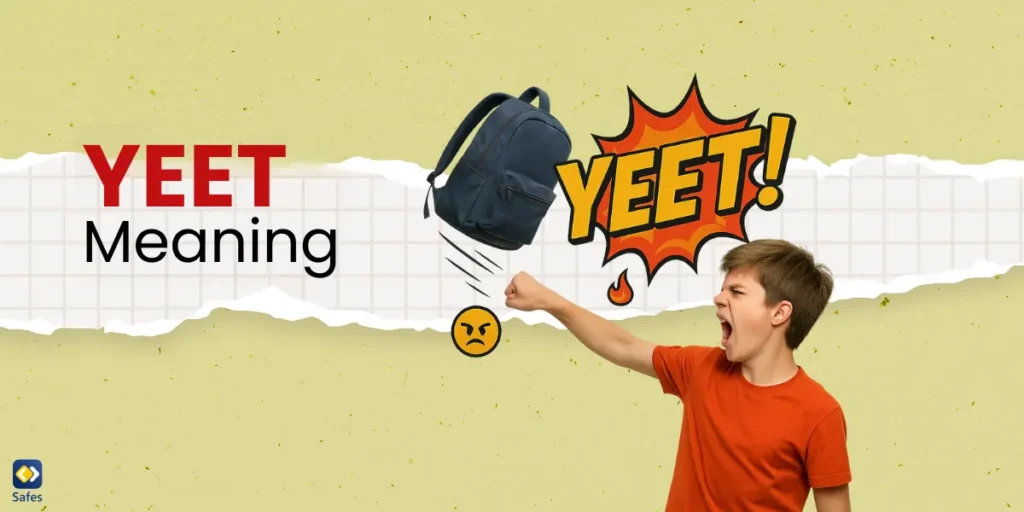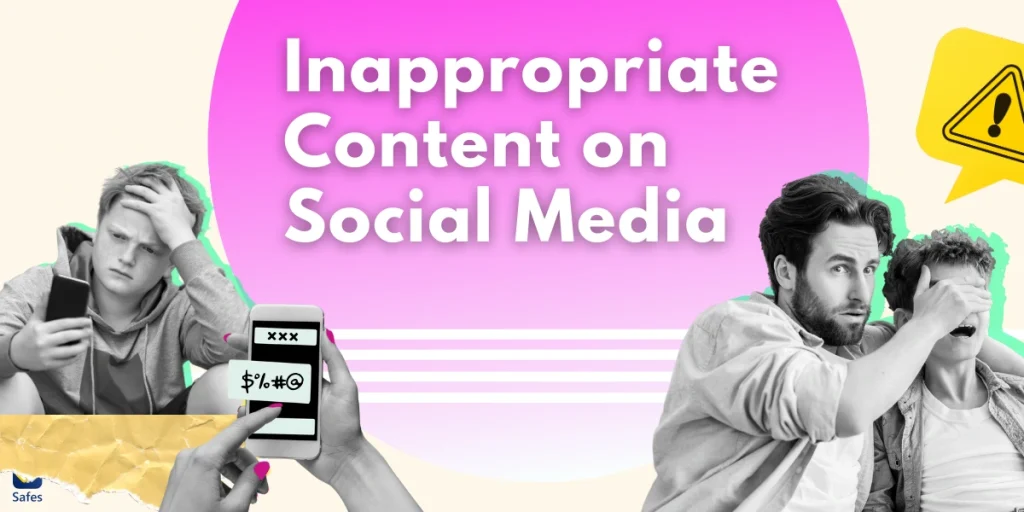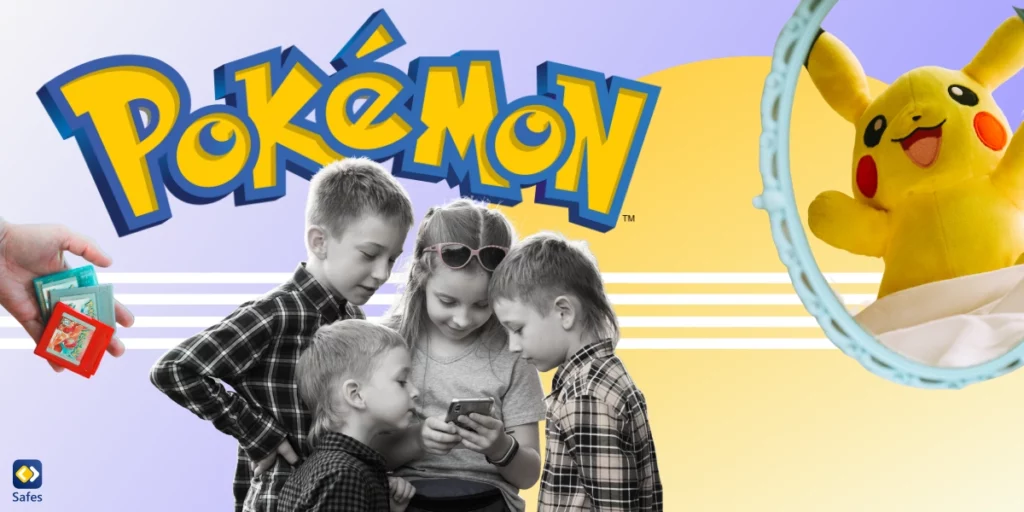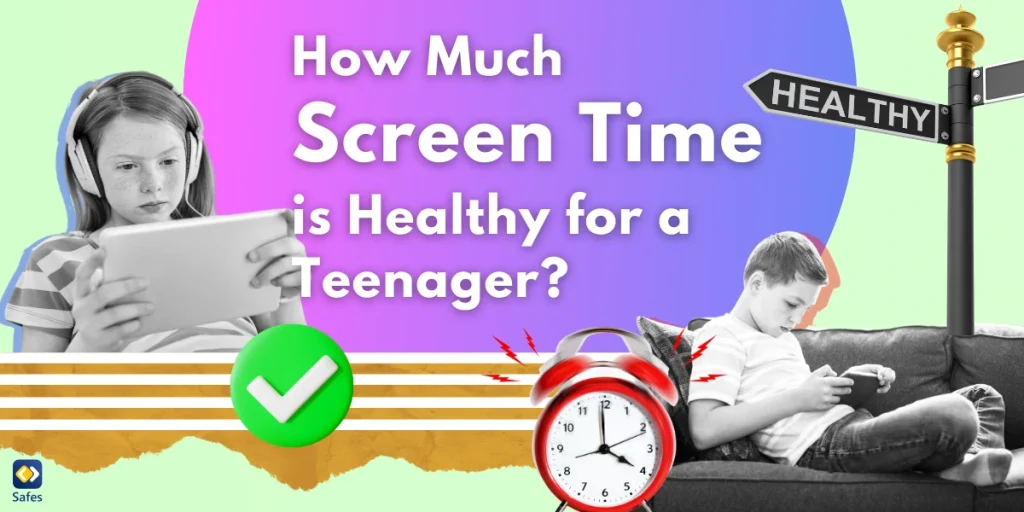If you’ve ever heard a child or teen shout “yeet” and wondered what on earth they were talking about, you’re not alone. Slang terms have taken over the internet, but it’s not always clear what they actually mean. In this blog, we’ll dive into the meaning of yeet, how it’s used in online conversations, and whether it’s something parents should be concerned about. Plus, we’ll discuss how to keep your child safe online while they explore the continuously evolving world of digital slang. Keep reading to find out more!
Download and Start Your Free Trial of the Safes Parental Control App
What Does YEET Mean?
“Yeet” is a slang that’s usually used to show excitement or to describe throwing something with a lot of energy. The meaning of yeeting often involves tossing or launching something in a dramatic, exaggerated way. Picture someone tossing their phone onto the couch or a student hurling their backpack across the room at the end of the day, they might shout “Yeet!” as they do it. It’s all about enthusiasm and dramatic motion. You’ll often see it written in lowercase (yeet) or all caps (YEET) for extra emphasis, but either way, it’s the same idea. While it started as a silly sound effect online, it’s now part of how many young people joke around or exaggerate their actions.
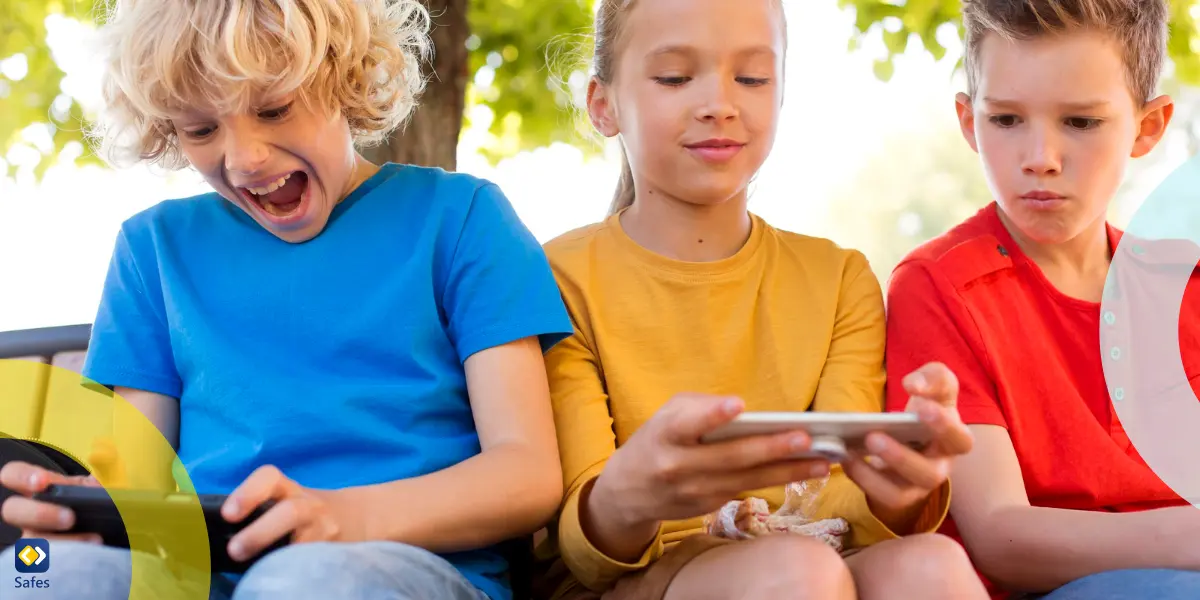
How It’s Used in Real Digital Interactions
“Yeet” is usually used in a playful, joking way, and it can mean slightly different things depending on the context. Sometimes it’s a reaction word, sometimes it’s used like a verb (“I yeeted it across the room”), and sometimes it’s just a fun way to show energy or confidence.
Here are a few examples you might see in texts or social media posts:
- “Just finished my exam. Yeet!” (used to express relief or excitement)
- “He tried to shoot me in the game, but I yeeted him first.” (used like a verb, especially in gaming indicating someone is shot or killed)
- “That was a total yeet moment.” (used to describe something wild, unexpected, or intense)
- “Yeet or be yeeted.” (playful, slightly exaggerated phrase used in memes or jokes)
Platform-Specific Usage
Slang can show up on different platforms, and the way it’s used can slightly change how it’s understood or interpreted.
TikTok
TikTok helped boost “yeet” to viral status. It van show up in videos where someone throws an object or does something energetic, with “YEET” shouted for dramatic effect. You might also see it in memes or dance videos with over-the-top reactions.
Snapchat
On Snapchat, “yeet” is usually used in short captions or texts between friends. It’s casual, something like “yeet 😤” after submitting homework, or “bout to yeet this test” before going into an exam, meaning they’re going to ace it.
On Instagram, it’s more likely to show up in comments or Reels. Someone might comment “YEET” on a video where something funny or chaotic happens. It’s often used in reaction to action-packed or silly content.
Gaming
In gaming chats (like Fortnite, Minecraft, and Discord), yeet is a common part of the slang used during gameplay. Whether it’s throwing an item, launching a character, or pulling off a crazy move, “yeet” fits right in to describe fast, impulsive actions, usually with a laugh. For example, a player might say, “I yeeted myself off the map,” after falling or making a risky jump. It’s often used to highlight bold moves or funny moments, adding excitement and humor to the game.
Risk Level Indicator (Parent Alert System)
🟢 Green: Harmless everyday slang
“Yeet” is generally considered safe and lighthearted. It’s mostly used for fun, to show excitement, exaggerate an action, or make a joke. There is no inappropriate meaning attached to it in most cases, and it does not signal anything concerning on its own.
However, like any slang, context matters. If it’s used in a way that sounds aggressive or is part of teasing behavior (for example, “I yeeted his stuff into the trash”), it might be worth checking in. But in most situations, it’s just kids being silly online.
Trend Tracker: Is It Still Relevant?
📉 Fading – was big, but is declining
“Yeet” had its big moment a few years ago and became a staple in internet culture, especially thanks to platforms like Vine, TikTok, and gaming chats. As of April 2025, it’s still used occasionally, mainly in gaming or as a throwback joke, but it’s no longer at the peak of popularity. Many teens have moved on to newer slang, though younger kids or nostalgic users might still toss it into conversations for fun.
![]()
Online Safety Considerations
The good news is that yeet is not linked to any dangerous or harmful online behaviors. It’s not a secret code, it’s not used in grooming tactics, and it does not carry hidden or inappropriate meanings. Most of the time, it’s simply a fun, exaggerated way for kids to express energy, humor, or surprise.
That said, the way slang is used can sometimes change depending on the situation. For example:
- A child might say they “yeeted” someone’s notebook across the room. This could be just a joke, or it might hint at teasing or rough play.
- In gaming chats, it could be used during heated moments, such as “I’m going to yeet you off the map.” This is usually part of game culture, but occasionally it might be used in a more aggressive tone.
Parents do not need to be alarmed, but it’s always helpful to check in and stay involved. A friendly question like “I’ve seen you use that word, what does it mean to you?” can open a conversation.
Can Parental Controls Help?
Yes, they can be a useful tool, especially when paired with open communication. While yeet is not something that would raise red flags in parental control systems, keeping an eye on overall screen time, app usage, and the types of content children interact with is still important.
If your family uses Apple devices, iPhone parental controls allow you to manage app limits, screen time, and privacy settings. You can also set content restrictions and approve downloads. These settings are built into iOS and can be managed from your device or through Family Sharing.
For families with a mix of devices, Safes parental control app offers a flexible, multi-platform solution. Safes works across Android, iOS, and even Windows, allowing you to monitor online activity, block inappropriate websites, and get alerts about potential risks. It’s a helpful option for parents managing several devices across different platforms. Try Safes’ free trial today, no strings attached!
Technology tools are useful, but the most effective safety strategy is communication. Being curious, supportive, and consistent helps kids feel safe and respected, and that makes them more likely to come to you if something online ever feels confusing or uncomfortable.
Conclusion
Slang like yeet is a fun part of how kids and teens express themselves online. While it might sound strange or silly to adults, it’s usually harmless and simply reflects the playful, fast-moving world of internet culture. By staying curious, asking questions, and keeping communication open, parents can better understand the language their children use and feel more confident navigating their digital lives. A little awareness goes a long way in helping you stay connected without overreacting to every new trend.
Your Child’s Online Safety Starts Here
Every parent today needs a solution to manage screen time and keep their child safe online.
Without the right tools, digital risks and excessive screen time can impact children's well-being. Safes helps parents set healthy boundaries, monitor activity, and protect kids from online dangers—all with an easy-to-use app.
Take control of your child’s digital world. Learn more about Safes or download the app to start your free trial today!
